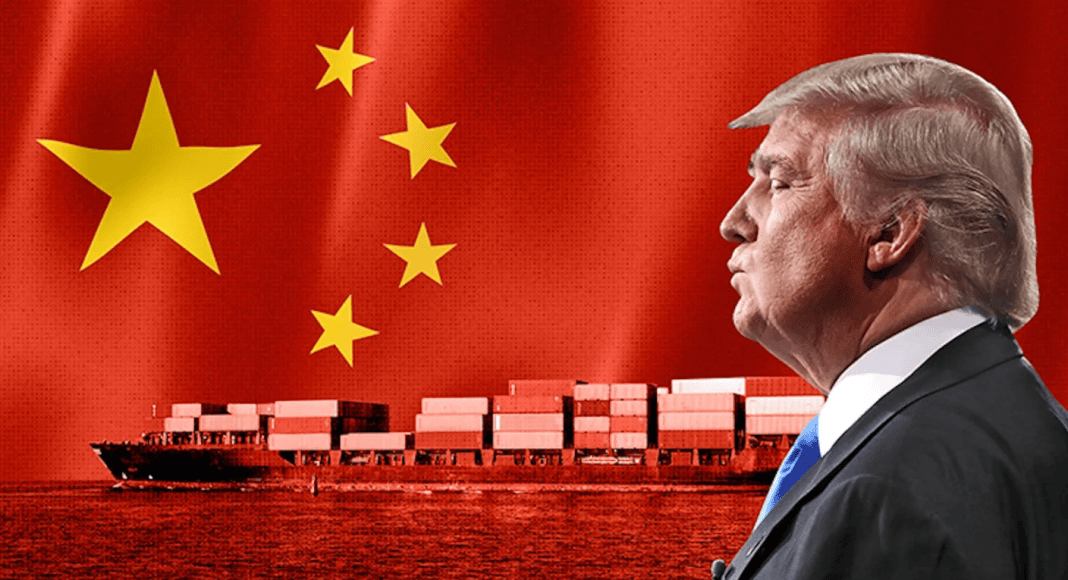U.S. President-elect Donald Trump hasn’t hidden his intentions to adopt a tough stance toward China, with threats of imposing tariffs as high as 60% on Chinese imports and appointing China hawks to key positions in his administration. This approach could strain U.S.-China bilateral relations, causing headaches for Beijing. However, according to the British think tank Chatham House, Trump’s administration may also present China with a significant opportunity to expand its global influence.
Trump’s “America First” foreign policy is likely to result in a partial or full withdrawal of the U.S. from international organizations and initiatives that have long been cornerstones of American global hegemony. This will create a power vacuum that China will be eager to fill. Beijing hopes to gain more room to establish itself as a global leader and shape an increasingly multipolar world in its favor.
China’s Expanding Influence
Chinese President Xi Jinping envisions a global order, not chaos. However, this order will prioritize flexible partnerships based on shared interests, rather than the alliance systems built on universal values that the U.S. has traditionally championed. In practice, this will provide China with significant influence due to its massive economy, technological leadership, and growing military power.
China is actively trying to shape this vision by restructuring the United Nations (UN), advancing its own international initiatives, and setting the terms for new technologies and supply chains.
Since 2021, China has launched three major global initiatives tied to its influence within the UN: the Global Development Initiative (GDI), the Global Security Initiative (GSI), and the Global Civilization Initiative (GCI).
The UN Charter is cited as the “core” of the international system in the GSI concept document. The GCI, which promotes “dialogue among civilizations,” has been endorsed by the UN General Assembly and UNESCO — both organizations from which Trump withdrew the U.S. earlier. The UN has become a key platform through which China seeks to build its role as a global mediator, including promoting a peace plan for Ukraine alongside Brazil.
The GDI represents an evolution of China’s international development approach, following the Belt and Road Initiative (BRI), which solidified China’s role as a primary development partner for the Global South. The GSI and GCI will be the next initiatives to watch.
The GSI provides a framework for international security cooperation as an alternative to U.S.-led military alliances. While China’s global military reach still lags far behind the U.S., the GSI focuses on areas where China excels, such as cybersecurity and data protection. As U.S. commitments shrink, China will be able to use the GSI to spread its security norms while safeguarding its economic interests.
China has already positioned itself as an attractive security partner for U.S. defense allies. Pakistan, a major non-NATO ally, has increased security cooperation with China to protect Chinese workers on BRI projects. Egypt, another non-NATO U.S. ally, is rumored to be considering replacing its U.S.-made F-16 fighter jets with Chinese J-20s.
In contrast, the GCI is designed to offer an alternative to Western-led universal human rights values. Instead, it promotes an international system based on civilizations, each with its own values and political systems, whose sovereignty and authority must be respected.
This framework, already a routine feature of Chinese diplomatic discourse, is inherently appealing to emerging powers dissatisfied with the Washington-led world order.
A disengaged U.S. administration could allow Beijing’s “civilizational” narrative to become the foundation of international diplomacy, especially as China’s influence within the UN grows.
China’s Influence Through Trade and Technology
Ultimately, China’s strongest influence will continue to come from trade and technology, particularly in sectors where it already holds a leading position.
China’s systematic approach to developing green technologies, from energy production to electric vehicles, has already given it dominance over these supply chains.
As Chinese technology becomes more widespread, the standards governing its use are likely to become the global norm.
China’s advanced technological capabilities, combined with its role as a key development and tech partner for the Global South, mean that much of the world will increasingly rely on China for green technology supply chains. As a result, Chinese technological standards are likely to become the global benchmark.
U.S. Absence Is a Win for China
The Trump administration’s reluctance to engage in international climate cooperation will leave China as the largest player in this space, with the technology and goods the world needs for the green transition.
The international influence this will grant China should not be underestimated. This year’s Forum on China-Africa Cooperation saw a host of commitments to increase collaboration in renewable energy and green technology. The summit also included pledges to deepen cooperation on another potentially paradigm-shifting technology: AI.
China’s ambition to become a leading figure in global AI governance presents a significant challenge for the U.S., which is increasingly inward-looking.
China is eager to share its expertise and collaborate with countries across the Global South to implement AI systems, such as in smart city projects. With the U.S. stepping back — the only other serious competitor in this field — China will be positioned to set international standards for AI usage and establish long-term dependence on Chinese norms and systems.
Ultimately, the balance of international influence between the U.S. and China will not hinge on their bilateral relationship, but on how each country interacts with the rest of the world, concludes an analysis by the British think tank.

